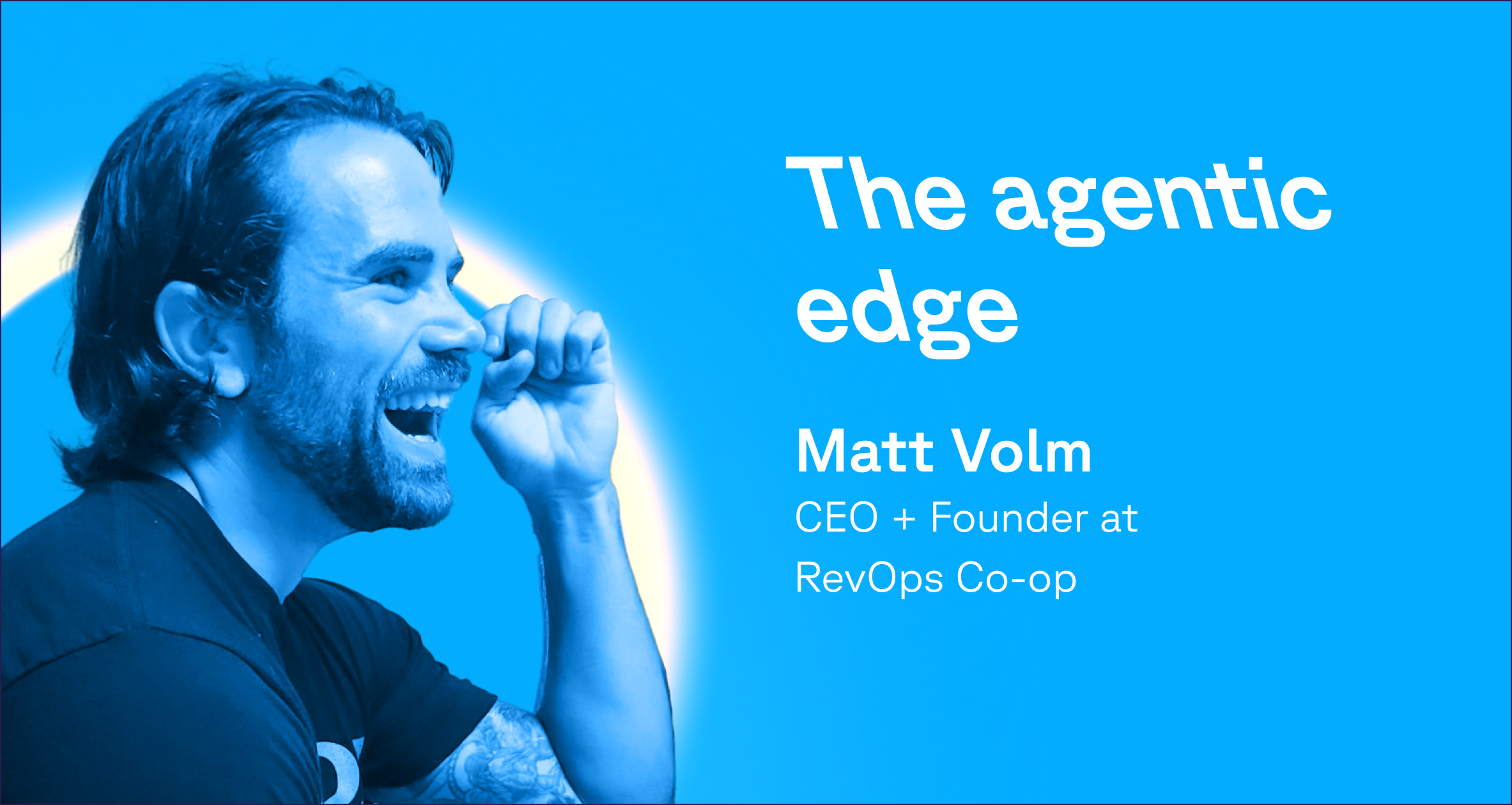In the last year, the role of Revenue Operations has shifted from enabling execution to designing transformation. AI isn’t just another tool in the stack. It’s reshaping how go-to-market teams operate, collaborate, make decisions, and scale.
We asked four RevOps leaders how they are approaching AI: What does staying ahead look like in today’s landscape, and where does AI fit into that vision? The answers reveal a set of strategic approaches for operating smarter in the agentic era.
This post features Matt Volm, CEO and Founder of RevOps Co-op, whose AI-first mindset isn’t about replacement; it’s about rethinking resourcing, reframing limitations, and unlocking new momentum. His approach starts small, questions old defaults, and treats curiosity as a strategic advantage in a rapidly evolving AI landscape.
Flipping the script: From headcount-first to AI-first
For Matt, keeping up in today’s landscape means more than learning new tools, it means rethinking how problems are framed from the start.
“For me, keeping up means adopting an AI-first mentality. This doesn't mean firing everyone and attempting to replace them with AI – that's silly and wouldn't work. But when faced with a new problem, I'm now intentional with my thinking and first look at if / how AI could help me solve this problem.”
This AI-first approach challenges old instincts. Instead of assigning a new task to a teammate, or hiring someone to take it on, Matt now pauses and considers whether automation could be the better path.
“Previously I may have considered handing things off to people on my team or even hiring new people to help with things as a natural reaction, but now my mindset has shifted.”
It’s not just about tools. It’s about resourcing differently from the start.
Start with one use case, then let the flywheel spin
For all his AI-first enthusiasm, Matt didn’t jump in with a complex transformation. He started with a single, focused use case: contact data enrichment.
“Start small with one focused use case; for me, that was data enrichment.”
But what happened next is what makes his story so compelling: once he saw AI work in one area, his entire perspective opened up.
“Once I got familiar there I all of a sudden started having all these other ideas like ‘oh I can do xyz with this too,’ so all of these problems that I previously just accepted as ‘it is what it is,’ thinking I had to live with them, I realized I could solve for with AI technology.”
That’s the real power of AI-first thinking, it’s generative (pun-intended). One solved problem reframes dozens of others.
Reframing failure: What didn’t work last quarter might work now
AI is evolving fast. And that means RevOps leaders can’t afford to treat past failures as permanent limits. Matt has seen firsthand how what didn’t work a few months ago might work surprisingly well now.
“On the marketing and content creation side I’ve seen some raised eyebrows to things because ‘they've tried that in the past and it hasn't worked.’ But then those same people are seeing that things are changing and advancing so rapidly that the same thing they tried last quarter that didn’t work could very well work great this quarter.”
In a fast-moving space, curiosity becomes a strategic asset. Matt doesn’t just lead with it, he builds teams that are allowed to explore, retry, and test again.
Operator takeaway: Your backlog may be solvable now
Matt Volm’s approach is a playbook for anyone feeling stuck. Instead of overhauling systems or searching for enterprise-scale ROI, he starts with the smallest possible win and lets learning compound.
He reminds us that “impossible” problems from last year may be solvable today. That repetitive pain points we’ve grown numb to could actually disappear. And that sometimes the smartest move isn’t to scope the project, but to just try it and see.
That’s the agentic edge: curiosity, velocity, and the ability to reframe what’s worth fixing.

